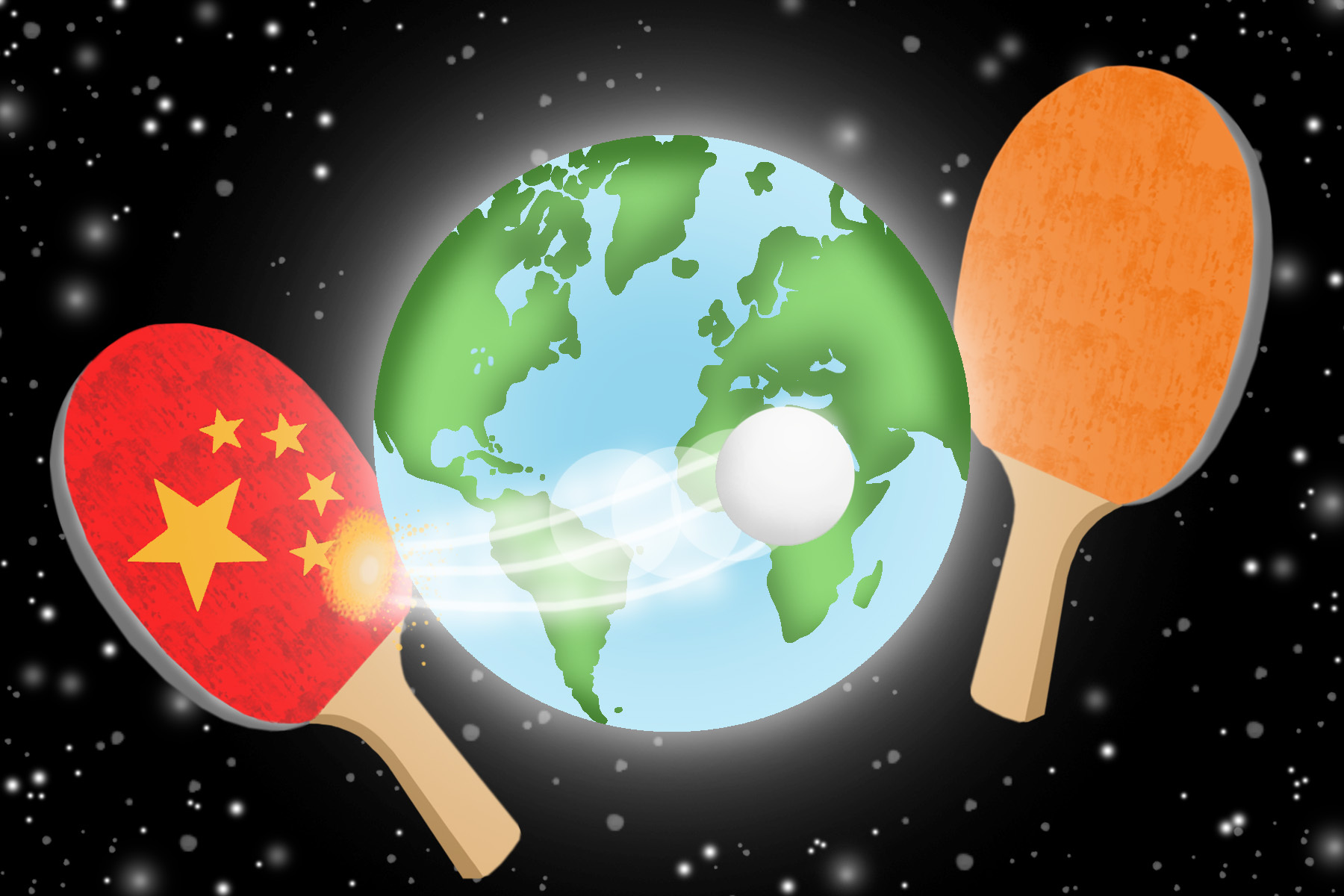Table tennis, also known as ping pong, is the national sport of the People’s Republic of China. For China, ping pong is not only a popular sport but is also seen as a tool to build public confidence, improve relationships with the rest of the world and bring pride to the country.
Why Did China Choose Ping Pong?
When one hears the term “ping pong,” it’s easy to make an association with China. However, ping pong table tennis actually originated in England and was later popularized in China.
In the 1920s, a British communist created the International Table Tennis Federation with the goal of spreading communism throughout the world. As a major communist country, China joined the international federation and, in 1989, a Chinese player won the first world championship medal.
In the 1950s, Mao Zedong, the founder of the People’s Republic of China, declared ping pong the national sport of China. There are several reasons why China chose to highlight ping pong.
One simple reason is that it was a top-down decision. Chinese leaders like Mao Zedong and Zhou Enlai enjoyed playing ping pong at that time.
Moreover, in the mid-20th century, China’s economy was still developing, and the wealth gap was significant. Ping pong was a low-cost game that anyone could afford. The equipment required was cheap — requiring a paddle, a ball and a flat surface. Additionally, ping pong did not require much space to play, so people could even play at home.
Furthermore, playing ping pong requires more precision and dexterity than “big ball sports” such as football or basketball, giving Chinese people with relatively thin bodies and shorter heights an innate advantage in the sport.
Thus, with the encouragement of leaders and the convenience of the sport, table tennis became popular among the public in China. People of all ages, backgrounds and statuses now play ping pong in their free time. This popularity laid the foundation for China’s later dominance in the world of ping pong.
Ping Pong Diplomacy
Ping Pong not only helped to improve the physical health of Chinese citizens but also played a significant role in China’s relationship with the rest of the world, especially with the United States.
After Mao Zedong declared the creation of the People’s Republic of China in 1949, China’s relationship with the United States was hostile, and no official American delegation had visited China in over 20 years. However, the two superpowers could not maintain diplomatic isolation forever. In the early 1970s, thanks to “Ping-Pong diplomacy,” the U.S. – China relationship improved after a long period of isolation.
In 1971, the China Table Tennis team participated in the 31st World Table Tennis Championships in Nagoya, Japan, and put forward the principle of “friendship first, competition second.” This principle laid the foundation for ping pong diplomacy.
On April 4, 1971, American table tennis player Glenn Cowan hopped on a shuttle bus carrying the Chinese national team. A Chinese player, Zhuang Zedong, shook Cowan’s hand and began chatting with him through an interpreter. Zedong then gave Cowan a gift: a Hangzhou brocade embroidered with the beautiful scenery of Huangshan Mountain as a symbol of friendship.
Taking this opportunity, the head of the U.S. Table Tennis delegation proposed a bold idea to the Chinese Table Tennis Association, hoping to invite American players to visit China and ease tensions between the two countries.
Invited by China’s communist government, the United States table tennis team, along with a small group of American journalists, arrived in Beijing April 10, 1971, becoming the first Americans allowed to enter China since 1949. This action had a significant impact on the breakthrough of U.S. – China relations and the sport was hailed as a “little ball” that moved “the big ball.” The friendly exchanges between the Chinese and American table tennis teams helped to promote the normalization of relations between the two countries.
Therefore, ping pong can be viewed as an essential tool of diplomacy that helped to connect China with the world.
The Pride and Glory of China
As the national sport, Chinese ping pong keeps dominating the world.
Since table tennis became an official Olympic sport at the Seoul 1988 Olympics, Chinese athletes have won an impressive 32 out of 37 gold medals, with only five medals being won by athletes from other countries. The Chinese table tennis team has not only dominated the Olympic Games but has also reigned supreme at the World Championships. Based on official records, the men’s Chinese National Team has not lost a series in the Table Tennis World Championships since 1995, and the women’s team has remained undefeated since 1994.
So, why does the dominance of ping pong continue in China? There are three main reasons.
The first reason for China’s continued dominance in ping pong is the sport’s early popularity in the country since the 1950s. With over 85 million people playing the game daily and 350 million watching major table tennis competitions, table tennis can be found in almost every park or school in China. This massive fan base has given China more table tennis players than any other country.
Second, the intensive training system in China has enabled its athletes to win almost every game. The country scouts and selects talented players at a young age and spares no effort in ensuring their success. Athletes on the Chinese national team are required to train for at least seven hours daily in both table play and physical conditioning. Moreover, top players train with specialized practice partners; practice is often co-ed so players can enhance their strength and speed by competing against all different types of athletes.
Third, the Chinese table tennis team’s continued success can be attributed to their mastery of the best techniques. Chinese ping pong techniques have undergone constant evolution. The “reverse penhold backhand” was invented and popularized by Chinese Olympian Liu Guoliang, and remains an influential table tennis move. Furthermore, Chinese athletes developed backhand looping to a higher degree and incorporated it into their training and competitions in the 1990s, taking their technique to a new level and enabling them to defeat their opponents more effectively.
Thus, as the national sport, ping pong has helped China build national confidence and played a significant role in benefiting its economy, diplomacy and societal well-being.

















